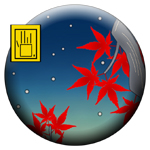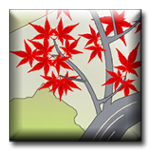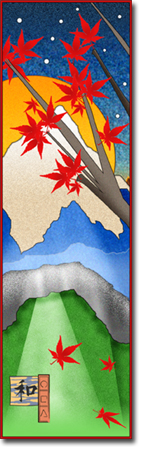On The Way: The Daily Zen Journal
Advice and Encouragement
Kusan Sunim (1901-1983)

Beneath blue clouds
A white crane is perched
On the branch of an aging pine.
Do you enjoy
The embroidery of rivers and mountains
Shining with autumn color?
Let’s bask together
In the subtle fragrance
Of the wild chrysanthemum.
Whenever the mind is at ease, peacefulness results. However, true peacefulness is only found upon awakening to the mind. We cannot consider the highest values of mankind to be embodied in material things. The highest value of people can only be realized through awakening to the mind. Thus, we should devote ourselves to the search for spiritual peace by awakening to the ultimate truth that underlies all phenomena.
It is impossible to fill a broken and unclean vessel with pure water. But when water comes to settle in an unbroken and clean vessel, the moon is able to reflect clearly in it. Similarly, the quieter and purer the mind becomes, the more manifest will be the brightness of the wisdom originating from the true nature. Finally, when conceit and all other stains are removed, we will awaken to the immovable mind.
Once mastery over our destiny within birth and death is obtained, we will be finally content. We will understand our role in the world and will no longer be subject to the unsettling influence of the eight winds.
To have mastery over our destiny within birth and death means that always and everywhere our minds are at peace. And no longer being prone to the vicissitudes of birth and death, we realize eternal life. Understanding our role in the world means to recognize the attainment of Buddhahood as our goal and set out to accomplish it.
Since there is no higher goal than enlightenment, only then will we know true contentment. Gain, loss; fame, disrepute; praise, criticism; pleasure and displeasure—these are the eight winds that give rise to unsettling waves of discontent in this world.

The doors of our senses should be shut as firmly as the gates of a fortress. Consciousness is continually entering and leaving through these six doors. Therefore, those who are cultivating the mind must firmly secure their consciousness within the gates of the fortress. In this way the six thieves (the sense objects) will be unable to distract us. Only in this manner will we be able to discover peace of mind.
Wisdom is not a particular thing that can somehow be acquired. It is simply that which knows how to eat when we are hungry, how to sleep when we are tired, and how to use a fan when we are hot.

Wisdom is that which makes a vessel into a teacup when it is filled with tea, a sauce dish when it is filled with sauce, a rice bowl when it is filled with rice, and a medicine pot when it is filled with medicine. There is no set method in the functioning of this wisdom. It is simply that which knows how to utilize things according to the case at hand.
Do you know what constitutes the brightness of the mind? Have you ever witnessed the radiance that emerges from it? An enlightened person is able to directly see this radiance of the mind. But even if you are unable to actually see it, you are nevertheless using it right here and now.
This brightness that radiates from the mind is precisely that which is able to see forms and hear sounds. If it were absent, we would be unable to either see or hear.

With wisdom we should judge carefully between what is wholesome and unwholesome in our lives. We should try and act so that the mind always remains pure, bright, and unobstructed. We should behave with a sense of firm conviction in the rightness of what we are doing. To exercise this kind of wisdom is to wield the sword that dispels the three poisons of attachment, anger, and ignorance. It is the perfection of wisdom itself.
Excerpted from The Way of Korean Zen – Kusan Sunim 1985





Many are unfamiliar with the Zen teachings from Korea; Master Sunim was the first Zen teacher to accept Western students into a Korean monastery and speaks easily to moderns.
Eleven years ago we introduced his “Instructions for Meditation” which are clear and easy to grasp. Here we take the next step with him in listening to some of his advice and encouragement which is well timed as we all can use sincere encouragement in practice, especially from one who has gone before.
With the change in colors and the sense of pause before the next step in the natural world, what better time than now to recharge our practice? Often in times of transition, we can awaken to inspiration that comes to energize and quicken beginner’s mind. It is a gift and encouragement along the Way.
The movements of Nature remind us of something more than our limited points of view….
Something hidden,
Go and find it…
Rudyard Kipling
Elana, Scribe for Daily Zen